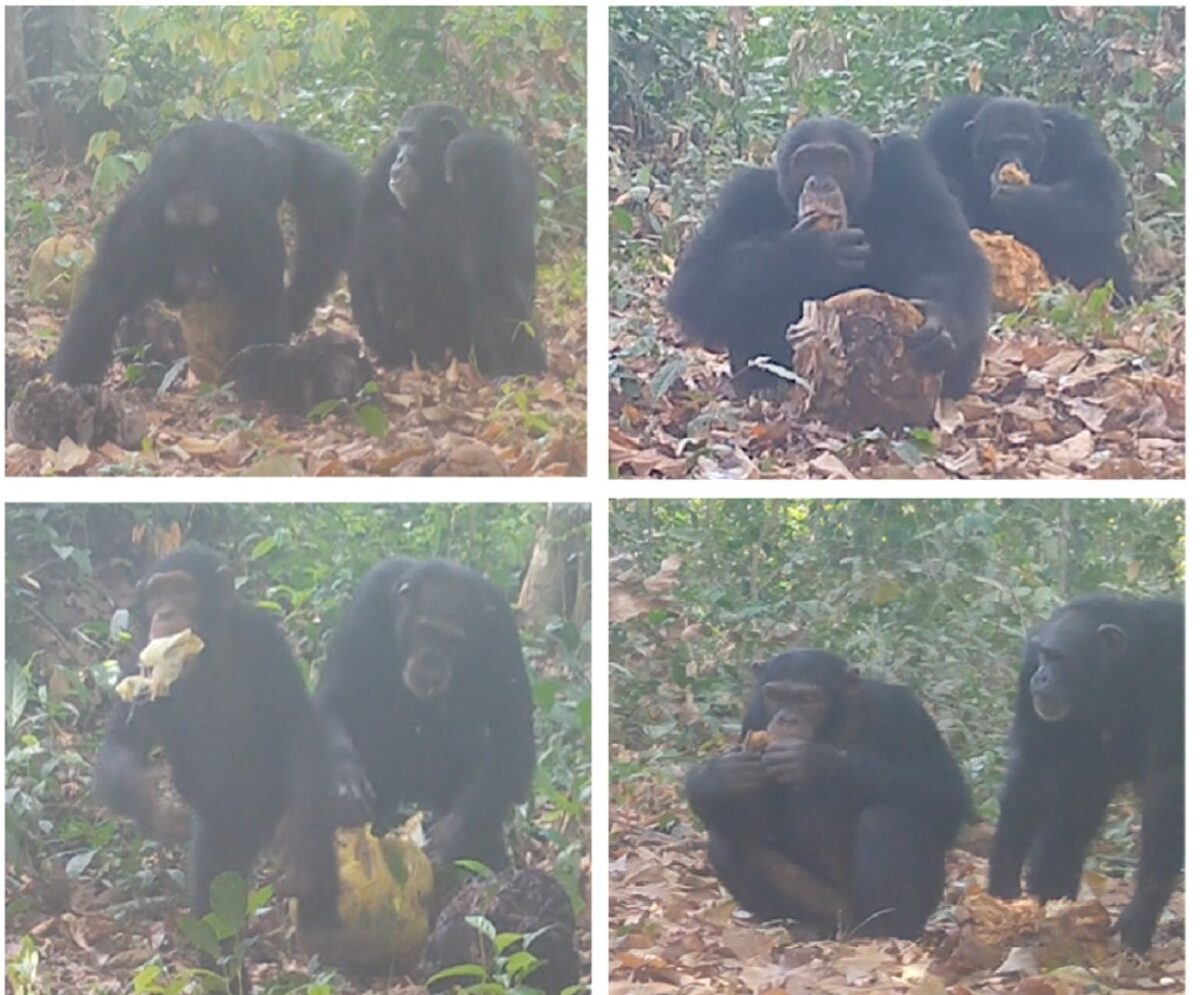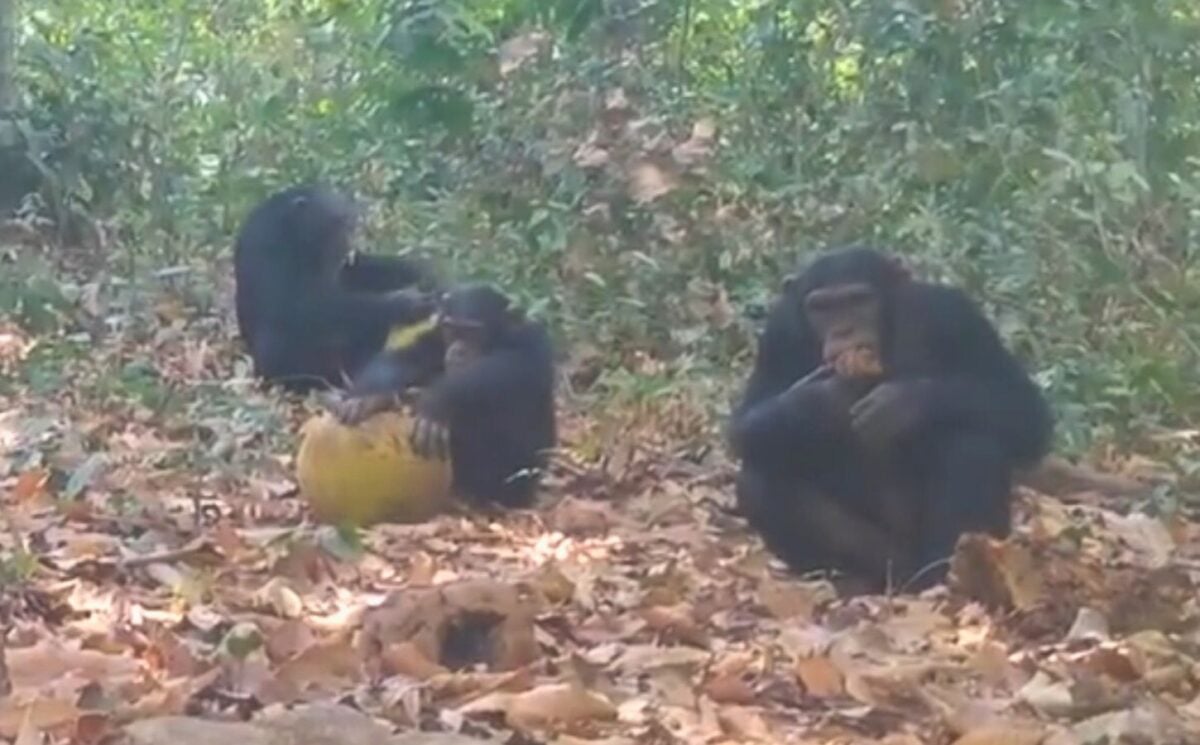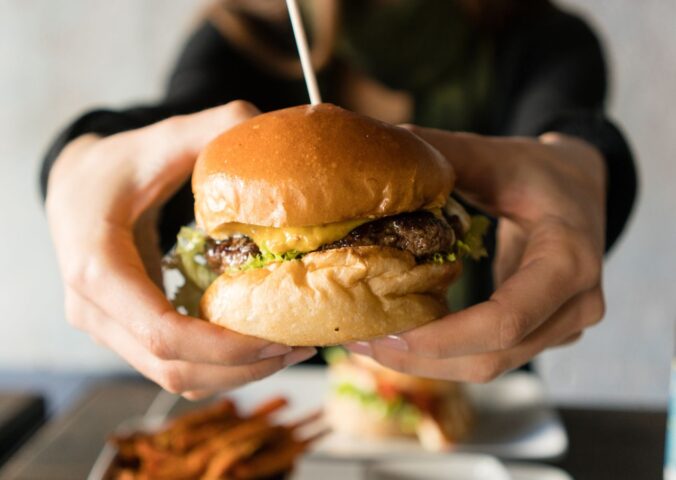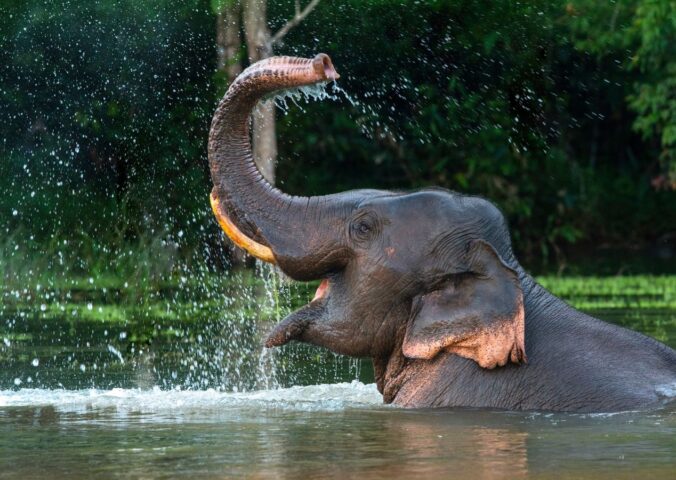Researchers have filmed wild chimpanzees sharing alcoholic fruit, the first time such behaviour has been documented.
The team was led by scientists from the University of Exeter in the UK, who filmed “the repeated ingestion and sharing” of naturally fermented breadfruit by various combinations of chimpanzees at the Cantanhez National Park in Guinea-Bissau, West Africa.
The researchers employed motion-activated cameras to capture footage of chimpanzees sharing alcoholic fruit on 10 different occasions. Their work was published in Current Biology last month and builds on previous studies that document alcohol drinking amongst chimps.
Chimpanzees do not always share food with one another. One previous study suggested that apes have the same reciprocal willingness to share as young children, meaning they do it primarily with those who have shared food with them first.
The new footage implies that the sharing of fermented fruit, in particular, may be a bonding activity comparable to human alcohol consumption. The accompanying study notes that the sharing of alcoholic fruits “may have played a long-standing role in hominoid societies.”
Read more: Spanish Government Finally Opens Period Of Consultation For ‘Great Ape Law’
Use of alcohol ‘rooted in our deep evolutionary history’

The team’s work noted that late ripe fruits – with significantly higher alcohol content – were prioritized by chimps in 50 percent of the filmed interactions. In two out of the 10 interactions, the fruits that were not selected by chimpanzees were “clearly” less fermented. The most alcoholic fruits were only around 0.61 percent ABV, which is relatively low, but researchers said this could be the “tip of the iceberg” as the bulk of chimps’ diet is made up of fruit.
“Social eating and alcohol consumption comprise two key components of feasting behaviour in humans,” wrote the Exeter-based researchers. “But do the origins of feasting behaviour derive from a shared common ancestor? Our data provide the first evidence for ethanolic food sharing and feeding by wild nonhuman great apes, and supports the idea that the use of alcohol by humans is not ‘recent’ but rather rooted in our deep evolutionary history.”
In October of last year, an analysis of existing research on non-human alcohol consumption summarized how widespread the phenomenon is amongst wildlife, including chimpanzees and other apes. In addition to ethanol, naturally fermented fruits are rich in calories and vitamins, and their consumption is both “ecologically relevant” and potentially ancient.
Read more: Conservation Funding Prioritizes Large Mammals Over More Threatened Species, Study Finds






